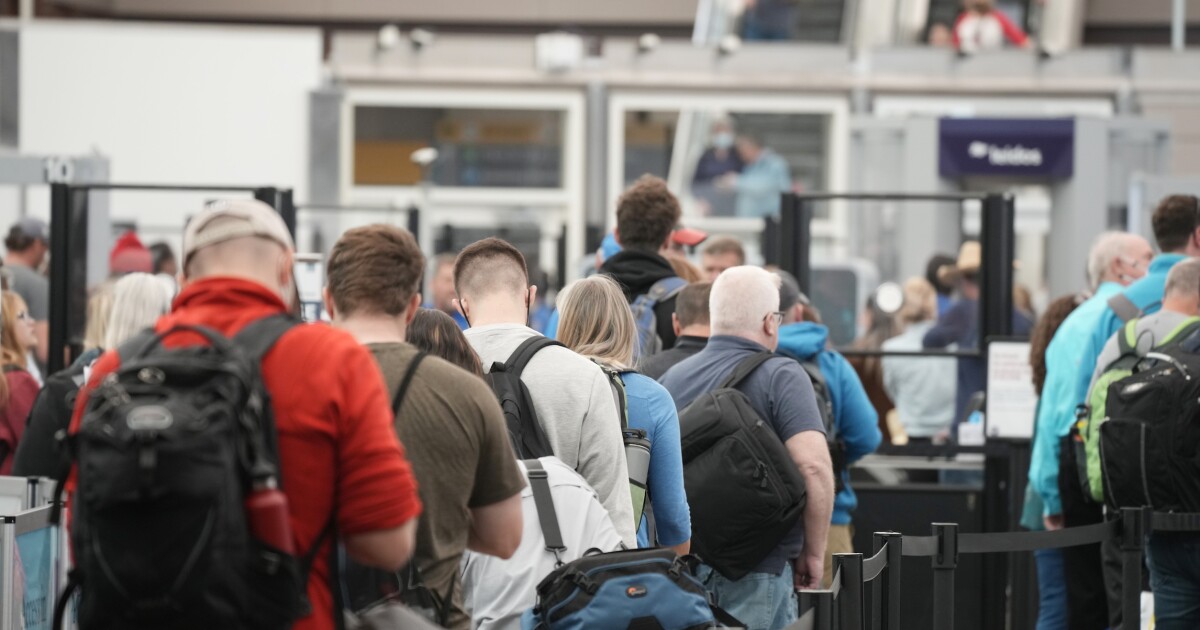

The Biden administration is facing pressure to end a COVID-19 travel restriction that tourism industry advocates say is hurting the economy and causing headaches for Americans and foreign nationals alike.
Even with most virus mandates fading from memory, the United States still requires inbound travelers to test negative for COVID-19 within one day of their departure, and the White House is not saying when or if that will change.
KHASHOGGI WIDOW WANTS BIDEN TO UPHOLD HUSBAND’S LEGACY, NOT HURT SAUDI RELATIONS
“We’re constantly evaluating our policy,” White House press secretary Karine Jean-Pierre said when asked about the issue June 1. “The predeparture testing requirement remains in place, as we have it today. And any decision on predeparture testing requirement would be made by our health and medical experts.”
A reporter asked a follow-up question about what purpose the policy serves given that most other nations have dropped test-entry requirements, to which Jean-Pierre said, “It’s in constant evaluation, as I just laid out. I don’t have anything more to share from here.”
The Biden administration has been quick to add COVID-19 restrictions when it feels they’re needed but has been notably slow to remove them. It took judge’s rulings to end the Centers for Disease Control and Prevention’s eviction moratorium, vaccine mandates for private businesses, and the federal mask mandate for air travel and public transit.
As in those cases, advocacy groups are lobbying the White House to make a change on its own.
A group of more than 260 travel industry and business organizations sent a letter to White House Coronavirus Response Coordinator Ashish Jha in May calling for the end of the predeparture testing requirement.
“The wide range of public health tools to effectively manage COVID-19, combined with hospital-grade ventilation systems onboard airplanes and the inbound vaccination requirement, have also made international air travel safer than ever,” the letter reads. “While there is no longer a need for an inbound testing requirement for vaccinated travelers, the economic costs associated with maintaining the measure are significant.”
Business travel spending was stuck at 56% of 2019 levels, the group said, and international travel spending was down fully 78%.
Before December, travelers to the U.S. had to test within three days of their departure. But in the wake of the omicron variant, the Biden administration changed it to allow just one day prior to departure. That too has stuck around.
Some health policy experts say the policy may still be justified.
“While the U.S. is an outlier, it’s likely that the uncertainty around new variants and the current surge in the U.S. have contributed to the continued requirement,” said Anand Parekh, chief medical adviser at the Bipartisan Policy Center. “It would be helpful to see data demonstrating the ongoing positive impact of this policy. Without compelling data supporting the policy and given the inconsistencies with inbound land-based travel, officials should consider moving to risk-based guidance, as opposed to requirements, which could recommend a number of actions.”
Those guidelines could include preboarding testing, masking, and arrival testing — but as a recommendation rather than a requirement.
Conservative groups have long opposed virus-related mandates, and the same holds true with travel testing.
“It’s madness to require predeparture testing for a virus that’s already everywhere in the U.S. and that most of the population already has immunity to,” said Phil Kerpen, president of the Committee to Unleash Prosperity. “We should be leading instead of lagging on a return to normal international travel.”
CLICK HERE TO READ MORE FROM THE WASHINGTON EXAMINER
Some Democrats have also called for a loosening of the requirement, such as Rep. Lou Correa (D-CA), who has asked the White House to exempt fully vaccinated inbound travelers.







